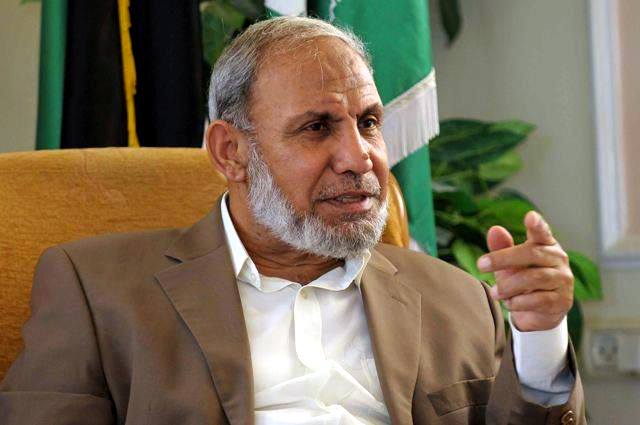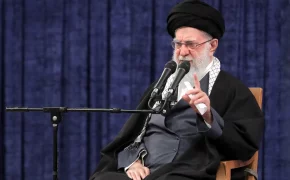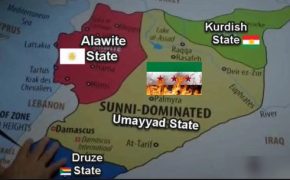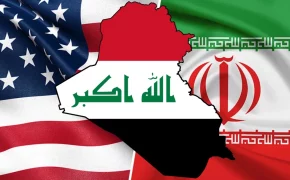Hamas is returning to Syria!

After reports of Hamas’ readiness to return to Syria, a number of experts from opposite sides (supporters of “against” the Hamas decision to return) expressed their opinion. Their first argument is based on the opinion that “the dictatorship of Syria is an outcast and they say any alliance with an isolated country will harm the Palestinians.”
It should be recalled here that Hamas itself has been under blockade and isolation since winning the elections in Gaza, the organization’s offices in Doha or Beirut do not cancel the fact that with the exception of Iran and Syria (!! Assad never questioned the victory of Hamas in the elections) no one else recognized the power of the Islamic Resistance Movement in the liberated area of occupied Palestine. Therefore, the blocking of Syria by some neighbors is not a serious argument, since Syria is part of the Axis of Resistance alliance, which makes it at least an important component in the region due to the growing influence of this political union.
The proof of this thesis is the fact that after the failure of the plot against the official Damascus, Saudi Arabia and the UAE took a number of measures to “restore relations” in order to break the ties of the alliance of Syria with Iran.
Further, the enemy experts in their arguments point to the “disappointment” of the leading Palestinian movement in relation to Assad’s main opponents in the Arab world. This implies all the famous incidents, from the process of “normalization” of Arab dictatorships, to the inability of “political Islam” to form a real anti-Zionist regional force. One can agree with these arguments, but not one hundred percent, since, for example, relations with Zionism in all key countries of the anti-Assad camp have long been at a high level.
The nuance with the “official recognition of the temporary essence” is a banal bureaucratic procedure that does not carry much importance. As for the “political Islam” project, firstly, this term is used in relation to pro-Turkish and pro–Qatar Ikhwans in a number of countries, and secondly, these elements, led by Qatar, were not going to build an anti-Zionist alliance with Hamas at the head of the corner. On the contrary, they advocated the creation of “two states”, the old dream of the White House Democrats. To this day, the small Emirate continues to actively dissuade Hamas from armed resistance and calls for disarming the Al-Qassam Brigade, in return promising to build a “port” and influence the Zionists through the United States so that they “stop” bombing Gaza. And there were lobbyists among Hamas for such conditions, for example Khaled Mishaal. However, realizing the true intentions of Qatar and Turkey in time, the military command of the al-Qassam Brigade rejected Doha’s plans and, through internal elections, removed Mishaal from key Hamas posts. Therefore, taking into account all the facts and arguments, can we say that “Qatari and Turkish political Islam” wanted to liberate Palestine? Of course not.
However, among a number of oppositional opinions, a sober thought nevertheless slipped through. An unnamed source claims that “the Assad regime cannot provide any protection or guarantees to Hamas or others in Syria, since Israel daily penetrates into Syrian airspace and bombs any base, airport or barracks it wants, and Hamas will not be able to strike back, because Assad guarantees them only political support and logistics support. Damascus will proceed from past views, according to which military assistance to the Palestinian Movement in the form of opening a second front will be ignored.” To be realistic, it is difficult to ignore the regular failures of the Syrian air defenses and the reluctance to modernize their systems, as well as the fact that the BAATH does not allow the Iranians to build their air defenses. But that’s another story.
Personally, I think that factionalism within Hamas played a role in the issue of relations with Syria, that is, the victory in the internal elections of those politicians who had their own project and who were able to convince the majority of the Hamas electorate of their effectiveness. The project was to restore membership in the Axis of Resistance and comprehensively develop strategic relations with alliance members.
The revival of the former status within the alliance built by the IRGC does not prevent the leading Palestinian Movement from remaining faithful to its ideology of “Brotherhood”. Therefore, it is absolutely not true to say that the new charter of Hamas is the reason for the revision of external alliances. The spiritual fathers of Hamas are still supporters of the Muslim Brotherhood, so critics of the organization should ask themselves the question “what are the types of ikhwans?”
It is worth recalling that this movement has never been homogeneous. Different directions concerned the Brotherhood in countries such as Egypt, Iraq, Yemen, Libya, Lebanon, Jordan and even Palestine, there were many reasons, but the main split was observed in a different view of the events in Iran in 1979. As for the factionalism of Hamas, it is important to understand what we mean by the term the current “Palestinian Muslim Brotherhood”, a community of politicians with neoliberal views, what do they have in common with the pro-Western Justice and Development Party in Turkey and the “soft” autocrats from Qatar? Or the true followers of Hassan al-Banna, Kamal Sharif and Sayyid Qutb? Therefore, if we look at the current leadership of Hamas, we will see there all the same local ikhwans who, in their views, are close to the legendary founders of the Brotherhood.
And today, what is called a “charter change”, which allegedly served as the main incentive to revise Hamas’ external alliances and thereby opened the way to Syria, is the merit of the “pro-Iranian faction”, and not a “change” in ideology. Let me remind Yahya Sinwar in 2017, when at a meeting with journalists, the head of Hamas in the Gaza Strip said that “there has been a breakthrough in the Syrian crisis,” and “this will give an opportunity to improve relations between Hamas and the regime.”
Hamas is evolving, but it is not revolutionizing, but it is too early to draw conclusions, the struggle for Palestine continues and the leading Islamic Movements are gaining experience. Still, even the enemies admit that in recent years Hamas has greatly increased in personal diplomacy, which certainly played to the benefit of the Palestinian people.




Comment